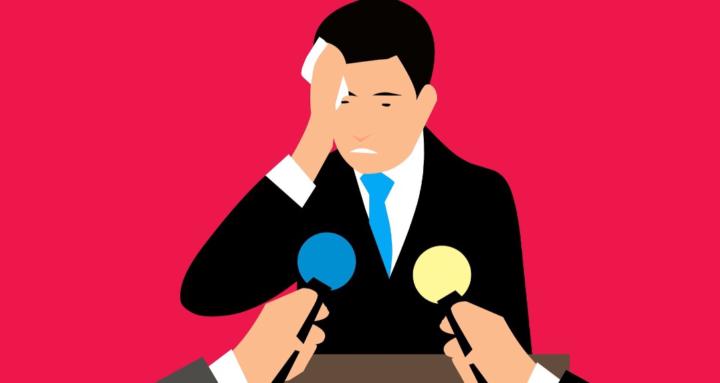
Write something
Pinned
✅ Welcome to the Fearless Public Speaking Club
You’ve just joined a place built for people who want to defeat the stress of public speaking and grow into confident, compelling speakers. Here’s how to get started: 1. Introduce yourself Drop a short post in the Introductions space. Tell us: - Where you’re based - What kind of speaking you do (or want to do) - Your biggest speaking challenge right now 2. Dive into the resources - Check out the pinned posts and training modules. They’ll give you practical tools you can start using straight away. 3. Join the conversation - This community only works if you use it. Comment on posts, share what you’re learning, and don’t be afraid to ask for help. 4. Play to win - Every month, we’ll highlight members who contribute the most, grow the fastest, or share the most valuable insights. That could be you. This isn’t another dead Facebook group. It’s an active, supportive space where professionals push each other to speak with confidence. Glad you’re here - now go post your introduction 👇
Sometimes - It's Best to Just Shut Up....
Many speakers fear silence. They rush to fill every gap with words, often undermining their own authority. Yet in professional speaking, silence is not weakness -it is power. A pause draws the audience’s attention in ways that no slide or statistic can. When you stop speaking, listeners lean in. They anticipate what comes next. This moment of heightened focus makes your next words land with greater weight. Pausing also gives your ideas space to breathe. Complex arguments, persuasive data, or emotionally charged points require processing time. Without silence, the audience struggles to keep up; with it, they can connect meaning to meaning, thought to thought. In effect, you control the rhythm of their understanding. From a psychological standpoint, silence communicates confidence. A nervous speaker rattles on, afraid of losing momentum. A confident speaker owns the room with stillness, showing that the message - not the speed - carries the importance. Think of seasoned leaders and broadcasters: they let silence work for them. Practically, pausing helps you too. It regulates breathing, steadies pace, and buys time to decide your next phrase. Even a deliberate sip of water can be a tool of command if framed by purposeful silence. To integrate pausing into your speaking: - Mark pauses in your notes where impact matters most. - Practise speaking slowly, using silence as punctuation. - Replace filler words (“um,” “you know”) with a pause instead. Silence is not empty -it is full of presence. Master it, and your words will resonate with authority long after you stop speaking. Your Coach, Mark
1
0
A Gift to You for Joining Our Community
Dear Community - today I'm releasing a copy of my eBook to you all. It's called The Obstacles - How to Unf*ck Your Mindset for Public Speaking - it's about the psychology behind why people struggle with people speaking and I want you to have access to it - completely free - Enjoy - Mark
Self-Efficacy and Public Speaking
Self-efficacy, a concept developed by psychologist Albert Bandura, is the belief in your ability to succeed at a specific task. In public speaking, it’s the conviction that you can plan, deliver, and adapt your talk effectively. This is more than vague “confidence.” It’s a targeted sense of capability that directly shapes performance on stage. Why Self-Efficacy Matters Speakers with high self-efficacy tend to approach presentations with focus and determination. They trust their preparation, see nerves as manageable, and handle unexpected challenges more effectively. By contrast, low self-efficacy often triggers avoidance behaviours—procrastination, over-preparing in the wrong areas, or even turning down opportunities to speak. When you don’t believe you can succeed, anxiety intensifies and performance suffers. The Four Sources of Self-Efficacy Bandura identified four key sources of self-efficacy, all of which have direct implications for public speaking: 1. Mastery Experiences – Successfully giving a talk, even a short or informal one, strengthens belief in your ability. Every “win” builds momentum. Failures, if unexamined, can damage self-efficacy—but if you reflect and learn, even setbacks can be turned into fuel. 2. Vicarious Experiences – Watching peers or role models deliver strong talks makes the task feel attainable. Seeing someone handle mistakes with grace is especially powerful, because it shows you don’t need perfection to succeed. 3. Verbal Persuasion – Encouragement from credible coaches, colleagues, or friends can boost self-efficacy. The key is that feedback must be specific and believable—“your opening story really hooked the room” is far more useful than vague reassurance. 4. Physiological and Emotional States – The way you interpret physical reactions matters. A racing pulse and shaky hands can be seen as panic, or they can be reframed as energy and readiness. That choice directly affects belief in your ability. How It Plays Out on Stage
2
0
Have you heard of the Spotlight Effect in Public Speaking?
The spotlight effect is a psychological phenomenon where we dramatically overestimate how much others notice us. In public speaking, it’s one of the biggest mental traps. When you step up to a lectern, your heart racing, it feels like every tiny mistake—a stumble over a word, a hand that shakes, a pause that lingers—is being broadcast under a blinding spotlight. In reality, your audience is not nearly as focused on you as you imagine. They are usually absorbed in their own thoughts, distracted by phones, or simply listening for the message that matters to them. This bias occurs because we live inside our own heads. We’re hyper-aware of our nerves, our appearance, and our delivery. That awareness tricks us into believing others see and judge us with the same intensity. Studies in psychology show that people consistently overestimate how noticeable their slip-ups are to others. Audiences rarely remember small errors, but speakers often magnify them in their minds. Understanding the spotlight effect is liberating. Once you realise your audience isn’t scrutinising your every move, pressure reduces. Instead of obsessing about being perfect, you can redirect your energy to communicating clearly and connecting authentically. Accepting that people are less critical than you think allows you to take risks, speak with more presence, and recover smoothly from mistakes. In public speaking, escaping the spotlight effect doesn’t just ease anxiety—it helps you focus on what truly matters: delivering value to your listeners, not protecting your ego.
2
0
1-5 of 5
powered by

skool.com/fearless-public-speaking-9080
A Home For Anyone to Practise Public Speaking with a Coach Who Normally Charges £2000 a day
Suggested communities
Powered by
